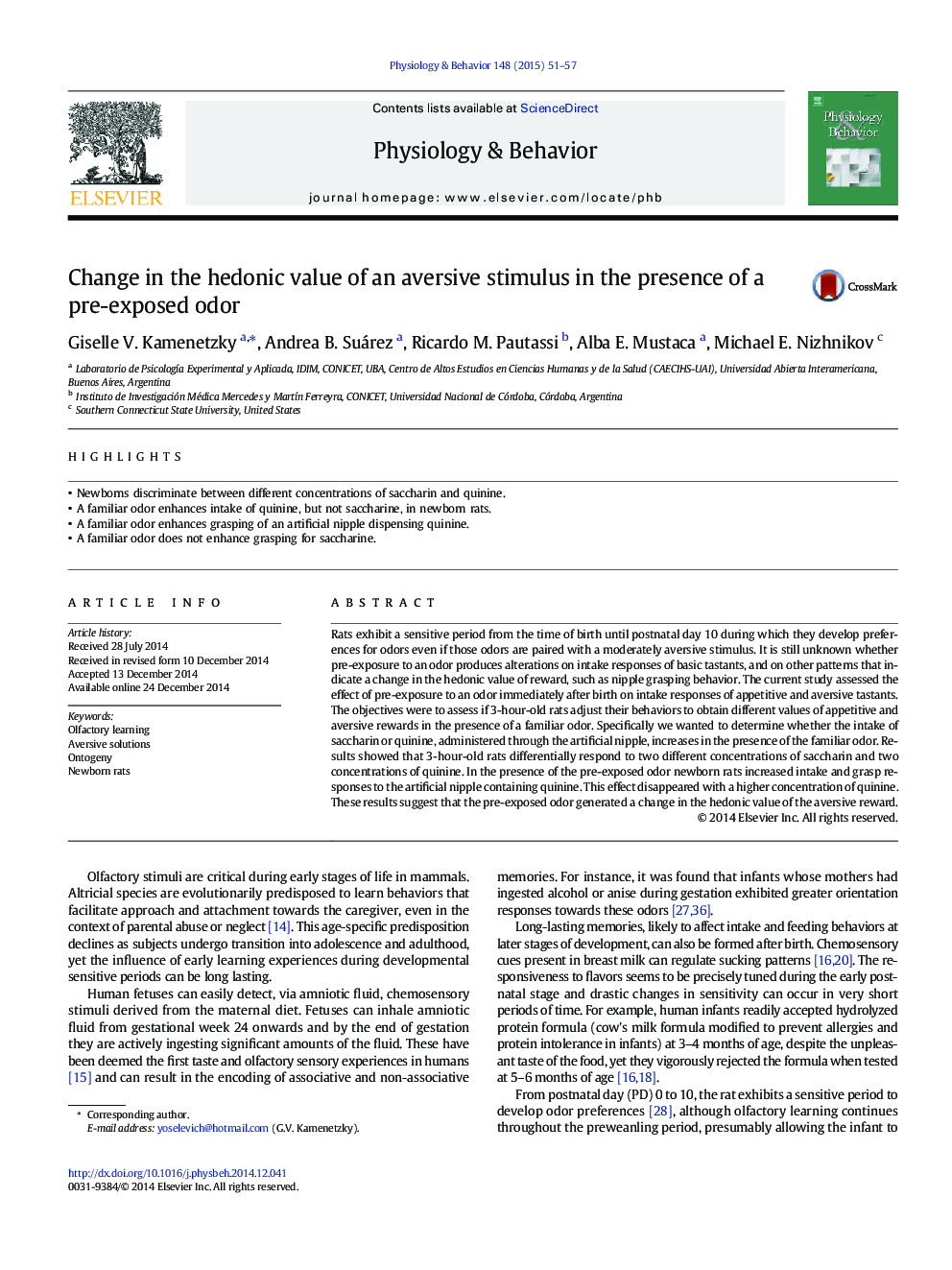| Article ID | Journal | Published Year | Pages | File Type |
|---|---|---|---|---|
| 2844093 | Physiology & Behavior | 2015 | 7 Pages |
•Newborns discriminate between different concentrations of saccharin and quinine.•A familiar odor enhances intake of quinine, but not saccharine, in newborn rats.•A familiar odor enhances grasping of an artificial nipple dispensing quinine.•A familiar odor does not enhance grasping for saccharine.
Rats exhibit a sensitive period from the time of birth until postnatal day 10 during which they develop preferences for odors even if those odors are paired with a moderately aversive stimulus. It is still unknown whether pre-exposure to an odor produces alterations on intake responses of basic tastants, and on other patterns that indicate a change in the hedonic value of reward, such as nipple grasping behavior. The current study assessed the effect of pre-exposure to an odor immediately after birth on intake responses of appetitive and aversive tastants. The objectives were to assess if 3-hour-old rats adjust their behaviors to obtain different values of appetitive and aversive rewards in the presence of a familiar odor. Specifically we wanted to determine whether the intake of saccharin or quinine, administered through the artificial nipple, increases in the presence of the familiar odor. Results showed that 3-hour-old rats differentially respond to two different concentrations of saccharin and two concentrations of quinine. In the presence of the pre-exposed odor newborn rats increased intake and grasp responses to the artificial nipple containing quinine. This effect disappeared with a higher concentration of quinine. These results suggest that the pre-exposed odor generated a change in the hedonic value of the aversive reward.
